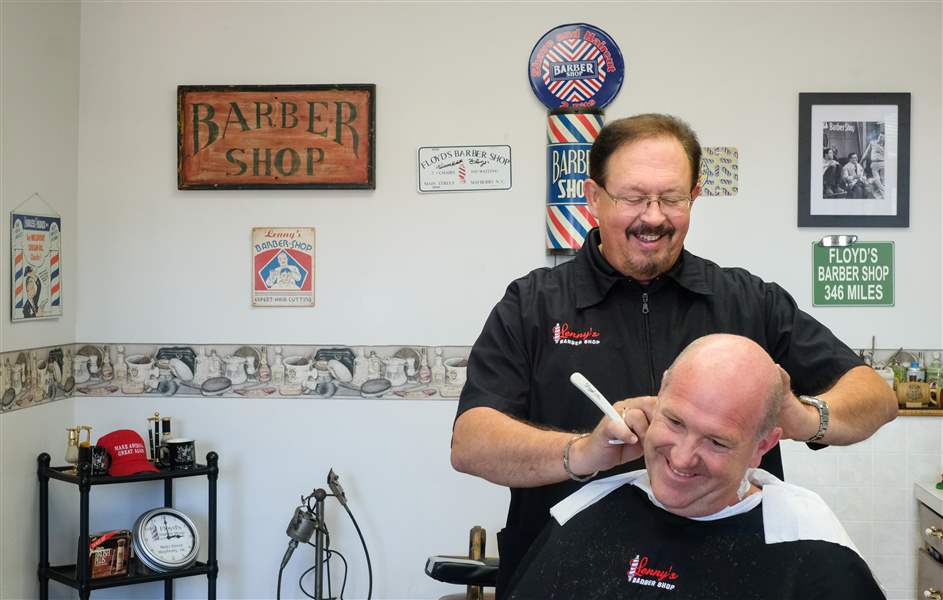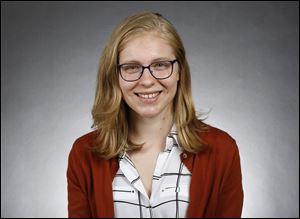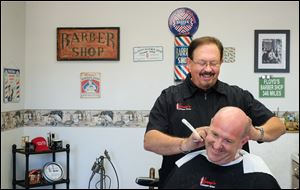
It's all about perspective
9/2/2018
Lenny Fowler, owner of Lenny's Barber Shop, cuts Dirk Sundheimer's hair in Coshocton.
THE BLADE/JEREMY WADSWORTH
Buy This Image
I’d been talking politics with a barber named Lenny Fowler in Coshocton, Ohio for nearly an hour when I referenced Planned Parenthood and the National Rifle Association in the same sentence. Mr. Fowler stopped me with a knowing grin.
“One saves lives,” he said, as if it were obvious, “and one takes lives.”
As a Yale student and Massachusetts native, I’ve spent my life in areas where many people think reproductive health care saves women and guns kill children. But for Mr. Fowler, the opposite rings true: that abortion kills and guns save.

Lily Moore-Eissenberg
It took me a moment to sort out what he’d said. Points he’d already made clued me in, as well as the “Make America Great Again” cap perched on a shelf. He meant guns save, of course; but in my moment of confusion, I saw in stark and almost comical terms the difference perspective makes.
It was a lesson I learned over and over on my solo reporting trip to a rural Trump-supporting town, an assignment handed to this year’s group of Yale interns by Blade Publisher and Editor-in-Chief John Robinson Block. I spoke with residents ranging from lifelong Republicans turned Sanders supporters to disenchanted Democrats with red Trump caps.

Lenny Fowler, owner of Lenny's Barber Shop, cuts Dirk Sundheimer's hair in Coshocton.
In those conversations, playing devil’s advocate — or, as Mr. Fowler preferred, “God’s advocate” — was a refresher for me on the importance of skepticism and directness. I found that my favorite interviewees were not necessarily those who held familiar views, but those who were willing to engage critically with their own. And conversations went best when I was honest about my own purpose and position from the start. The introduction that yielded the most fruitful and frank conversations went like this: “I’m Lily. Want to talk politics?”
Though narratives of declining coal-fired Appalachia do apply, in some respects, to Coshocton, visiting local shop owners all day for three days was often heartening. The commitment many older residents have made to the town might be seen as a relic of a more locally-oriented time — but it’s also a way of investing in community that persists in Coshocton despite the drugs that have destroyed many young lives.
Altogether, the political views residents expressed weren’t particularly surprising. The combination of industrial decline, drug abuse, and Trump support have become almost a cliché of Middle America since the 2016 election. What surprised me was that political party wasn’t what divided the people I interviewed, in my mind. It was their way of engaging — whether they spoke directly and respectfully, and whether they were willing to challenge and be challenged. Going forward, I’ll strive to apply what I learned to the ways I engage as a reporter and as a citizen.